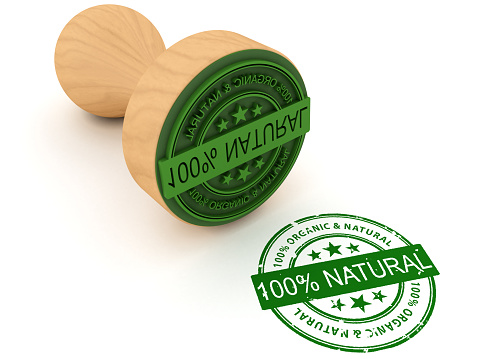Do you understand all of the labels placed on your food? When you walk into a grocery store, you are flooded with labels saying, “GMO free,” “organic,” “all natural,” “grass fed,” and so many others. But what do these labels truly mean?
Food labeling is important because it’s how people can judge what’s in their food and make decisions about what they want to eat. Labels are required by law for any foods sold across state lines. So the food at your local farmer’s market, as long as it’s grown in-state, doesn’t need a label unless the state requires it. Labels must be truthful and not misleading. Food labeling is enforced by the Food and Drug Administration as well as the United States Department of Agriculture, and any items that do not meet federal standards are misbranded and subject to recall.
What are GMOs?
GMO stands for genetically modified organisms. This means the instructions to cells in a living thing have been tweaked to produce a desired outcome in that organism. Most people think this just refers to plants, but this can actually be done in all living things. Some people may believe this a new, sometimes scary technology, but agriculturalists have been doing this, in some way, for thousands of years. This traditional method involves selective breeding, which uses desired traits in the parent organisms to pass those traits to their offspring. This is how we, as humans, have created the modern breeds of corn, cattle, sheep, and so many other agricultural products. However, genetic modification as we know it is a feat of modern technology, as producing a GMO is much more targeted. But, GMOs are not always a bad thing, in fact they can actually help protect the crops from diseases and make them more weed resistant.
Now that we understand what GMOs are, we are better able to understand what the label of “non-GMO” actually means. In the United States today, there are only 10 crops that have the potential for genetic modification. These include corn, soybeans, papaya, cotton, potatoes, squash, canola, sugar beets, and apples. So when you go into the grocery store and see a carton of orange juice that has a “non-GMO” label, understand that all oranges are non-GMO. When you see “non-GMO” labeling, stop and remember just what foods are impacted by GMOs.
What is “Organic?”
Now I’m sure you have heard celebrities or influencers talking about eating organic kale salads or using organic beauty products. But what does that word really mean? By definition, organic means “relating to or derived from living matter.” However, the agricultural definition of “organic” is much different.
According to the USDA, “USDA certified organic foods are grown and processed according to federal guidelines addressing, among many factors, soil quality, animal raising practices, pest and weed control, and use of additives. Organic producers rely on natural substances and physical, mechanical, or biologically based farming methods to the fullest extent possible.” This means in order to produce certified-organic foods, the farmer is not allowed to use any chemicals, additives, fertilizers, or other substances to enhance their production or the product itself. This allows no room for pesticides, herbicides, or soil enhancers that are not certified-organic as well. Produce must be grown in soil that had no prohibited substances applied for three years prior to harvest. For meat, animals must have living conditions accommodating their natural behaviors; like the ability to graze on pasture. Cattlemen and women must also feed the animals 100% organic feed and forage and not administer antibiotics or hormones.
As you can imagine, this process is extremely tricky and oftentimes expensive. Despite popular belief, farmers and ranchers are not rich. Because of this, they often have to make hard decisions. Do you try to convert your traditional production to organic farming for a slight premium, or do you stick with what you know works? Furthermore, there is no concrete evidence that organic products are any better for you than traditionally produced products.
What does “Natural” Mean?
On the same tread, what does “all natural” mean? While researching this, I found some interesting truths. The FDA does not have a formal definition of “natural”. However, according to their website, they consider “natural” to mean nothing artificial or synthetic (including all color additives regardless of source) have been included in or added to a food that would not normally, or naturally, be in that food.” Furthermore, the FDA has no regulations on certain production methods or pesticide use when related to the term “natural.”
So what does this mean for the consumer? It means anyone, any company, can stick the label of “natural” on their product. It also means the label doesn’t really hold water when it comes to government regulations. This leads to discrepancies in the market and further consumer confusion.
So there you have it – the three most commonly mischaracterized food labels. But there are so many more. You see, food-labeling companies use the consumer’s limited knowledge of their foods to try and convince them their product is inherently better than others. But do not be misled! Do your research! The bottom line is – it’s best to know where your food comes from and what’s going in to the products you prepare for dinner. That’s why making smart food choices is easy when you purchase from local farmers and ranchers, just like the ones we have here in Highland County. Purchase local foods at The Curly Maple, buy fresh veggies at the Highland Farmers’ Market, or stock your freezer with local beef, pork, trout, and more from any of our local producers. It’s all right here.
About the Author

Carly Thomas
Carly Thomas, a 2022 graduate of Highland High School, resides in the southern portion of Highland County. Growing up as the seventh generation to live on her family’s cattle ranch, Carly learned the importance of family, faith, and devotion to the land. She is passionate about FFA, agriculture, and supporting Highland County farmers. Carly enjoys being challenged and works in a variety of jobs from writing sports articles for her local newspaper to cooking at a local sandwich shop. She can often be found working on the ranch, riding horses with her father, or working on the next FFA activity.








0 Comments